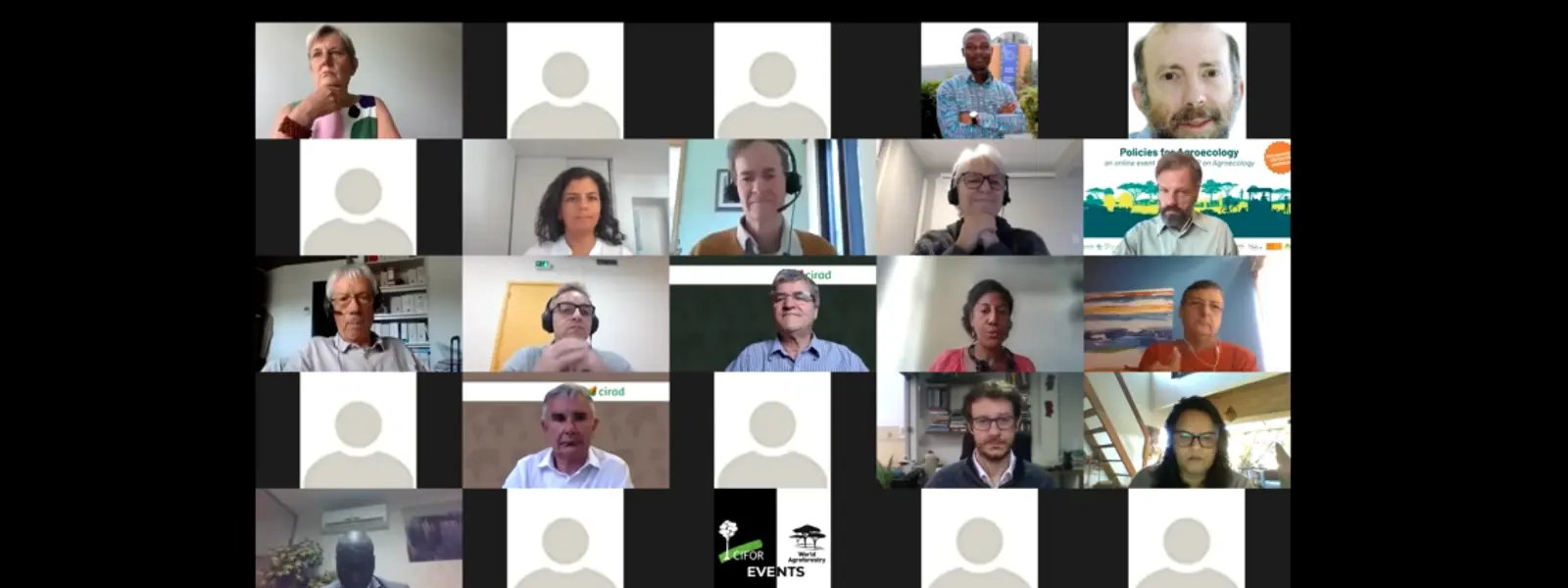The Policies for Agroecology event on 15 July brought together 20 speakers and 572 participants from over 50 countries to address the knowledge and implementation gaps standing in the way of agroecological transitions that work with nature, not against it.
Since its official launch on 3 June, the Agroecology Transformative Partnership Platform (TPP), which hosted the webinar, has begun interfacing with scientists and policy makers across eight domains that will support various institutions and advocacy groups in key decision-making processes.
During the event, the presenters unveiled the latest draft of “Agroecologically-conducive policies: a review of recent advances and remaining challenges,” opening it up for public review and feedback. This paper reviews existing literature on the current consumer, producer and market-oriented policies that have worked or could potentially work to support agroecological transitions over the next 10 years, and it proposes a unified analytical framework to assess them. This draft version will be open for public comment and revision until 15 September, 2021.
Review the draft and methodology to comment
Arlène Alpha and Stéphane Guéneau, from CIRAD also gave a short presentation on “Transitions to Agroecological Food Systems: a case for policy support” (TAFS) project. The TAFS project seeks to define a common method for implementing agroecological policies in 11 pilot countries. However, the proposal is not yet fully funded and is seeking donors.
Read the TAFS South Africa report
After the two presentations, the event concentrated on three national case studies from Brazil, Senegal and France. Representatives from each of these countries shared information on initiatives that demonstrated how principles of agroecology could be applied through public policies and in their unique contexts.
Next, two panels of experts came together to comment on what is working and where the gaps are for future research and implementation of agroecological principles. Many comments focused on the need for policy makers to think holistically and bridge the gap between sectors that do not commonly work together.
“The momentum for agroecological transitions is increasingly coming from everywhere — civil society, private sector and government ministries,” said Étienne Hainzelin, advisor to the president of the Agricultural Research Center for International Development (CIRAD), during the event. “We know that interactions between scientists and policy makers are crucial for this momentum to bear fruit.”
Watch the full event recordings
(EN/FR/ES)
English
French
Spanish

